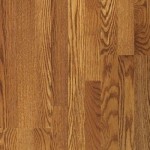Vinyl Plank Flooring: Understanding Recommended Thickness
Vinyl plank flooring has emerged as a popular flooring option due to its durability, water resistance, aesthetic versatility, and ease of installation. One of the crucial aspects to consider when selecting vinyl plank flooring is its thickness. The thickness of the plank significantly impacts its performance, longevity, and suitability for various applications. This article provides a comprehensive overview of recommended vinyl plank flooring thickness, exploring the factors that influence this decision and the implications of choosing the right or wrong thickness for specific needs.
Understanding the components of a vinyl plank is essential before delving into thickness considerations. A typical vinyl plank comprises several layers, each contributing to the overall performance of the flooring. The core layer provides the structural integrity of the plank, often made of solid vinyl core (SVC), wood-plastic composite (WPC), or stone-plastic composite (SPC). The wear layer, a transparent protective coating, shields the plank from scratches, stains, and wear. An image layer, positioned beneath the wear layer, provides the aesthetic appeal, replicating the look of wood, stone, or tile. Finally, some planks may include an attached underlayment for added comfort and sound absorption.
The overall thickness of a vinyl plank is measured in millimeters (mm), and the wear layer thickness is measured in mils (thousandths of an inch). Both measurements are crucial for determining the flooring's durability and suitability for different environments. Understanding these measurements is key to making an informed decision.
Key Point 1: Factors Influencing Recommended Thickness
Several factors influence the recommended thickness for vinyl plank flooring. These factors include the intended use of the space, the level of foot traffic expected, the condition of the subfloor, and the desired level of comfort and sound absorption.
Intended Use of the Space: The intended use of the space plays a significant role in determining the appropriate plank thickness. For residential applications, particularly in low-traffic areas like bedrooms or guest rooms, thinner planks may suffice. However, in high-traffic areas such as kitchens, hallways, and living rooms, thicker planks are generally recommended to withstand the increased wear and tear. Commercial spaces, which typically experience even higher foot traffic, require the thickest and most durable vinyl plank flooring options.
Level of Foot Traffic: The amount of foot traffic a floor will endure is a critical consideration. High-traffic areas demand thicker wear layers and overall plank thickness. Thicker wear layers provide better resistance to scratches, scuffs, and stains, ensuring the flooring maintains its appearance for a longer period. In residential settings, a wear layer of 12-20 mils is often sufficient for moderate foot traffic, while commercial settings may require wear layers of 20 mils or higher.
Condition of the Subfloor: The condition of the subfloor beneath the vinyl plank flooring is another vital factor. A smooth, even subfloor is essential for proper installation and performance. Thinner vinyl planks are more susceptible to imperfections in the subfloor, which can lead to unevenness, indentations, and potential damage over time. If the subfloor is uneven or has imperfections, thicker planks or an additional layer of underlayment may be necessary to provide a stable and even surface. Self-leveling compounds can also be used to prepare uneven subfloors properly.
Desired Comfort and Sound Absorption: The desired level of comfort underfoot and sound absorption can also influence the choice of vinyl plank thickness. Thicker planks, especially those with an attached underlayment, provide more cushioning and reduce noise transmission. This can be particularly beneficial in multi-story homes or apartments where noise reduction is a priority. The attached underlayment can also enhance the thermal insulation of the flooring, contributing to energy efficiency.
For areas prone to moisture, such as bathrooms and kitchens, SPC (stone-plastic composite) vinyl plank flooring is often preferred due to its exceptional water resistance. WPC (wood-plastic composite) offers more comfort underfoot, but may not be as water resistant as SPC. The choice between SPC and WPC also impacts the overall thickness options available.
Key Point 2: Recommended Thickness Ranges for Different Applications
Based on the factors discussed above, the recommended thickness ranges for vinyl plank flooring vary depending on the specific application. Understanding these ranges can help guide the selection process and ensure the chosen flooring meets the needs of the space.
Residential Applications: For residential applications, the recommended thickness typically ranges from 2mm to 8mm. In low-traffic areas like bedrooms and guest rooms, thinner planks in the 2mm to 4mm range with a wear layer of 6-12 mils may be sufficient. For high-traffic areas such as kitchens, hallways, and living rooms, thicker planks in the 5mm to 8mm range with a wear layer of 12-20 mils are generally recommended. These thicker planks provide better durability and resistance to wear and tear.
Commercial Applications: Commercial spaces demand thicker and more durable vinyl plank flooring options. The recommended thickness for commercial applications typically ranges from 5mm to 12mm or higher, with a wear layer of 20 mils or greater. High-traffic commercial environments such as retail stores, offices, and restaurants require flooring that can withstand heavy foot traffic, potential spills, and frequent cleaning. Thicker planks with a robust wear layer ensure the flooring maintains its appearance and performance for an extended period. Furthermore, commercial-grade vinyl plank flooring often features enhanced stain resistance and antimicrobial properties to meet the specific needs of these environments.
Applications Requiring Sound Absorption: For applications where sound absorption is a priority, such as apartments, condominiums, and offices, thicker planks with an attached underlayment are recommended. These planks typically range from 5mm to 10mm or higher, with the underlayment providing additional sound insulation. The underlayment can significantly reduce noise transmission between floors, creating a more comfortable and peaceful environment. In addition to residential and commercial settings, sound-absorbing vinyl plank flooring is also commonly used in healthcare facilities, schools, and libraries.
Areas with Irregular Subfloors: When dealing with irregular or uneven subfloors, thicker vinyl planks are generally preferred. These planks provide more rigidity and are less likely to conform to imperfections in the subfloor. Thicker planks in the 6mm to 12mm range can often bridge minor subfloor irregularities without requiring extensive subfloor preparation. However, it is still essential to address any significant subfloor issues before installing any type of flooring to ensure optimal performance and longevity. Self-leveling compounds or additional underlayment may be necessary in severe cases.
Key Point 3: Implications of Choosing the Wrong Thickness
Selecting the appropriate thickness for vinyl plank flooring is crucial to ensuring its long-term performance and satisfaction. Choosing a thickness that is too thin for the intended application can lead to various problems, including premature wear, damage, and installation challenges. Conversely, selecting a thickness that is unnecessarily thick can result in increased costs without significant added benefits.
Premature Wear and Damage: Using thinner vinyl planks in high-traffic areas can result in premature wear and damage. The wear layer, which protects the plank from scratches, scuffs, and stains, may wear down quickly, exposing the image layer and compromising the flooring's appearance. In addition, thinner planks are more susceptible to indentations from heavy furniture or dropped objects. This can lead to unsightly dents and damage that detract from the overall aesthetic of the space. Regular maintenance, such as using floor protectors under furniture, can help mitigate some of these issues, but it is still essential to choose an appropriate thickness for the expected level of foot traffic.
Installation Challenges: Installing thinner vinyl planks over uneven subfloors can present significant challenges. The planks may conform to the imperfections in the subfloor, resulting in an uneven surface. This can not only be aesthetically unappealing but also create tripping hazards. In addition, thinner planks may be more difficult to click together properly, leading to gaps and misalignment. Proper subfloor preparation is crucial for successful installation, regardless of the plank thickness. However, using thicker planks can often alleviate some of the challenges associated with minor subfloor irregularities.
Increased Costs: Selecting a thickness that is unnecessarily thick can result in increased costs without significant added benefits. While thicker planks generally offer greater durability and sound absorption, they also come at a higher price point. In some cases, the additional cost may not be justified if the application does not require the enhanced performance. For example, using exceptionally thick vinyl planks in a low-traffic bedroom may not provide a noticeable improvement in performance compared to thinner, more cost-effective options. It is essential to carefully assess the needs of the space and choose a thickness that provides the appropriate level of performance without exceeding the budget.
Compromised Comfort: While generally related to underlayment more than plank thickness alone, failing to use a sufficient overall thickness in areas designed for comfort can be detrimental. Thin planks with no underlayment or insufficient underlayment will not provide the necessary cushion underfoot for ergonomic comfort or heat retention. Installing a heated subfloor with vinyl plank can alleviate some of this, but the plank must be thin enough to allow effective heat transfer.
In summary, determining the appropriate thickness for vinyl plank flooring requires careful consideration of several factors, including the intended use of the space, the level of foot traffic expected, the condition of the subfloor, and the desired level of comfort and sound absorption. Selecting the right thickness can ensure the flooring provides optimal performance, longevity, and aesthetic appeal, while choosing the wrong thickness can lead to various problems, including premature wear, installation challenges, and increased costs. Consulting with flooring professionals and carefully evaluating the specific needs of the space can help guide the decision-making process and ensure a successful flooring installation.

How Thick Is Vinyl Plank Flooring Thickness Guide Reallyfloors America S Est Hardwood

Choose The Suitable Spc Flooring Vinyl Floor Lvt For You

How Thick Is Vinyl Plank Flooring Thickness Guide Reallyfloors America S Est Hardwood

3 Ways To Choose Vinyl Plank Flooring Wikihow

Luxury Vinyl Flooring Lvt And Lvp Thickness Guide Wood Beyond Blog

How Long Does Luxury Vinyl Tile Flooring Last Taj

3 Ways To Choose Vinyl Plank Flooring Wikihow

Diffe Thicknesses Of Vinyl Plank Flooring Why They Matter

Best Thickness For Your New Luxury Vinyl Plank Flooring

3 Ways To Choose Vinyl Plank Flooring Wikihow
Related Posts








